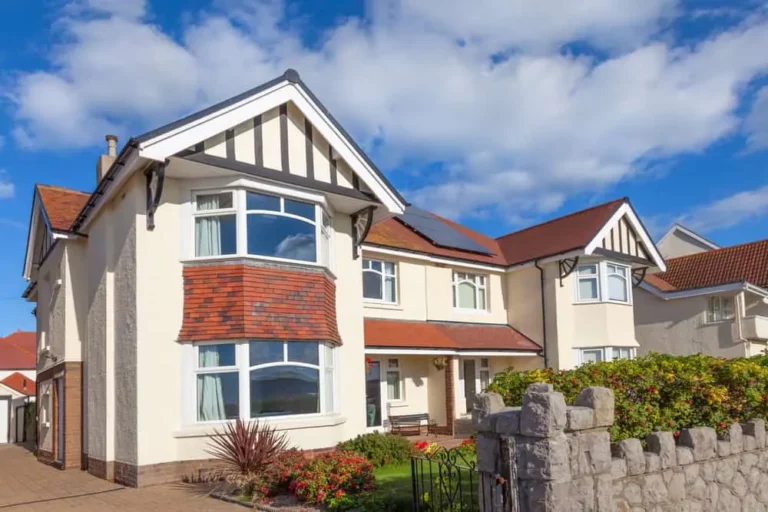Losing a loved one is a difficult and often overwhelming experience. We are very sorry for your loss.
We know when a loved one dies, their passing can sometimes leave behind an empty house. The the burden of dealing with the property's and estate affairs can add to the emotional strain.
One of the important tasks in this situation is to ensure that the empty property is properly insured. Particularly if you are acting as the executor, as it is your responsibility to arrange the right insurance policy.
This can be a complex and confusing process, especially if you are unfamiliar with the intricacies of unoccupied property insurance. It is not the same as insuring an unoccupied home.
Insuristic has developed a probate house insurance product designed particularly for people insuring in your situation.
This guide will help you understand what is involved when insuring an empty house after the death of the owner. You can read the guide from start to finish or click on any of the items in 'Contents' to jump to the section that interests you.
If you have questions that aren't answered on this page, start an online chat. In busy times it may not always be possible to answer immediately, but we will always respond to your questions via email too.
We are sorry for your loss.
We know that this is a stressful time for you and there are many things that you need to take care of.
As well as dealing with the emotional aspects, there is much to do on the legal and financial side.
Reviewing the existing house Insurance is an important task. If you are acting as an executor, it is your responsibility to arrange suitable insurance.
If you get this wrong and a claim is not paid out as a result, the beneficiaries could look to you to reimburse the estate. But don't worry, we have made this process easy.
Here are some considerations when Insuring an empty house after the death of the owner:
If there is a remaining spouse or partner, you should contact the existing insurer to update them to make arrangements to keep the house insured. You may find the buildings and contents insurance is with different providers so make sure you contact them both.
If the house is occupied by dependents or future beneficiaries that don't yet have an insurable interest in the house, you may find that some insurers are reluctant to provide cover. Don't worry, we can help you if this is the case but you will need to contact us or start a chat to arrange a call back. The product we offer would be a standard house insurance product with the option to insure the house in the name of the estate.
If the house is empty, you may find the existing insurance provider reluctant to continue cover. This is because many insurers are reluctant to insure property that is going to be empty for 30 consecutive days or more. If the insurer continues cover it may be at a higher price with extra policy conditions which may not be easy for you to adhere to. If this is the case, you should get a quote from a specialist, like Insuristic. We could save you time, money and stress. You can get a quote from our probate house insurance page.
The house needs to be insured in the name of the Estate, for example:
If there is a will: The Insured name should be 'The Executors of the estate of Name of the Deceased'
If there is no will: The Insured name should be 'Administrators of the estate of Name of the Deceased'
The contents insurance cover for unoccupied property isn’t designed for high value theft attractive items like works of art, jewellery or collections. You will find there will be a single article limit, usually in the region of £1,000. So valuables should be removed from the property and stored securely.
When the property has been inherited or sold, it will then need to be insured on a more appropriate policy, which could be:
Another unoccupied property insurance policy, if the house is still going to be empty. Insuristic can help with this, you can find out more on our unoccupied home insurance page.
If the house is going to be occupied by the beneficiary, they can take out a standard house insurance policy but insured in the name of the estate. If this is the case we can provide a quotation. Start a chat or contact us to arrange a call from one of the SJL Insurance Services team.
If the house is being let out to tenants, then a Landlords policy can be purchased. We can provide a quotation for this over the phone. Please contact us to arrange a call back.
While most unoccupied probate properties require specialised insurance, things get a bit trickier when someone continues to live there.
Standard home insurance and unoccupied probate policies won't quite tick the boxes in these situations.
Here's what to consider:
Surviving Joint Owner: If a joint owner remains, updating the existing provider with news of the death usually solves the problem. It's a seamless transition, ensuring the property continues to be covered.
Occupants Without Insurable Interest: But what if dependents, beneficiaries, or tenants reside in the property? They may lack the "insurable interest" required for standard home insurance.
Finding the Right Fit: Don't worry! Our team at SJL Insurance specialises in these nuances. They can offer a different product specifically tailored for occupied probate properties. It balances the needs of the estate with the occupancy aspect, providing the necessary protection.
Simple Steps to Secure Coverage:
Remember, proactive planning and a call to SJL Insurance are key to ensuring everyone's needs are met when insuring an occupied probate property. They're here to guide you through every step and find the perfect insurance fit.
When you are insuring an empty house after the death of the owner, you need to understand the cover available will be different to a standard home insurance product.
You will also find that the cover will also vary between insurance providers.
Here are the key differences:
If the property is empty, your insurance company will need someone to inspect the house. Ensure you check how frequently your insurer needs this done. Some may insist on this being every 7 days and may also require detailed written evidence of the inspection. If there is a claim, you will need to evidence that the inspection condition has been adhered to.
If you insure with Insuristic, we only require an inspection every 30 days; plus
To evidence the inspection, the person inspecting the property needs to take two images with their mobile phone (one of the front of the house and one inside). The time and date is be stored in the image, making it easy to evidence inspections in the event of a claim.
The contents insurance cover for unoccupied property isn’t designed for high value theft attractive items like works of art, jewellery or collections. You will find there will be a single article limit, usually in the region of £1,000. So valuables should be removed from the property and stored securely.
Many will insist that this is done as a policy condition.
When insuring an empty property after the death of the owner, it is understandable that things can be missed.
One often overlooked risk, is escape of water. This type of risk, unfortunately, tops the list of claims for unoccupied property, and the resulting damage can be extensive and time-consuming to repair. Worse yet, it can significantly disrupt your plans for the estate during a period already filled with complexities.
To minimise this risk, you have two main options:
1. Drain down the water systems: This is the most comprehensive solution, eliminating the potential for leaks altogether. While it may involve some initial cost and inconvenience, it offers peace of mind and the best possible escape of water cover under your policy – up to the full building sum insured.
2. Keep the heating on during winter: From October to March, maintaining a minimum temperature of 15 degrees Celsius is crucial. This helps prevent pipes from freezing and bursting, a common cause of water damage.
If you insure with Insuristic we can provide some cover for escape of water (provided you have implemented either points 1 or 2 above).
Our Silver Cover provides £3,500 cover for escape of water and Gold provides £5,000 cover.
When you are insuring an empty house after the death of the owner, you might be considering how the property can be improved to help its future resale value.
If this is the case, be aware that many insurers will need to know about any planned renovations (beyond basic painting and decorating) before offering coverage.
But here's where Insuristic eases the burden.
For renovations costing less than £50,000 and not involving major structural changes like wall or roof alterations, we can provide an online quote for your house insurance with no extra charges.
Think bathroom or kitchen upgrades, rewiring or replumbing, or even replacing doors and windows – as long as the total cost stays below £50,000, you're good to go!
For larger projects exceeding the £50,000 threshold or where there are structural improvements being planned, simply complete the online quote information and our team will take it from there.
We'll refer these changes to our underwriters for a personalized assessment. And if your specific renovation plans fall outside our scheme, don't worry! Our partners at SJL Insurance Services are renovation pros. They can offer expert advice and connect you with a range of specialist insurers who can handle even the most ambitious projects.
Remember, open communication with your insurance provider is crucial throughout the renovation process. By keeping them informed, you can ensure smooth sailing for your project and avoid any unexpected coverage hiccups. So, breathe easy, tackle those renovations with confidence, and let Insuristic or SJL Insurance Services handle the insurance side of things!
With a little planning and proactive communication, your renovation journey can be just as smooth as the freshly painted walls (or the sparkling new bathroom, whichever comes first!).
As you navigate the complexities of probate, safeguarding the unoccupied property within the estate becomes a crucial responsibility. To ensure its security and value are preserved, consider these insurance and risk management strategies:
Maintaining the Property:
Security Measures:
Failure to meet these standards could invalidate theft claims.
If you aren't insuring contents, Insuristic has simplied its minimum security. In this scenario, you would just need to confirm the property has working locks on all the windows and doors.
Escape of Water Prevention:
As we have already suggested in this article, the following is usually recommended by insurers:
Utilities and Services:
Contractor Management:
If you are having any work done at the property make sure to verify that your contractors hold valid public liability insurance. This will cover you for any accidental damage they cause to your property or injury to non-employees. Check the policy schedule for:
Maintaining an appearance of occupancy:
Try to make the property look lived in. This will make it look less theft attractive to potential burglars.
Remember:
While securing unoccupied property insurance is crucial for executors, their responsibility extends beyond the four walls. Let's explore some additional policies you should consider:
Our dedicated guide to executor insurance delves deeper into these policies and their nuances, guiding you through the cover options and at what stage they should be considered.
Considering these additional insurance options alongside unoccupied property coverage, helps you fulfill your executor duties with confidence, knowing the estate and its beneficiaries are well-protected against unforeseen risks.

In the UK, when a property owner dies, the ownership of the property typically passes to their beneficiaries as outlined in their will.
If there is no will, the rules of intestacy apply, which dictate how the property will be distributed based on the deceased's family circumstances.
Here's a general overview of what happens:
With a will:
Without a will (intestacy):
Here are some additional things to keep in mind:
The Executors (if there is a Will) or Administrators (if there is no Will) are responsible for arranging and paying for insurance. However, the specifics of payment and who ultimately bears the financial burden can involve several factors:
There is no official database to check if a property is insured. So you might have to do a little investigatory work to uncover the details of any existing insurer. Here are a couple of ideas:
The Executors or Administrators should remember it is their responsibility to arrange a suitable insurance policy. If you can't find an insurance policy, it may be worth immediately insuring the property yourself for peace of mind.
Not necessarily. If the property is going to be long term unoccupied, the existing insurer (if the policy hasn't lapsed) may be reluctant to continue cover.
If the existing insurer does agree to continue to cover the property in the name of the estate, make sure:
So it is important to review the existing insurance as soon as possible. In the event of any shortfall following a claim, the executors or administrators could be liable to reimburse the estate for the loss.
We have written a couple of blog posts that might be of interest:
If you aren't familiar with a property, it can be difficult to know the age of a house or when it was built. When you are arranging insurance, you will need to know this.
Insuristic have tried to make this easier for you by suggesting broad groups of property periods such as '1946-1979' but some insurance providers may require you to be more precise.
If you don't have the title deeds you will have to do some investigatory work.
We have written a guide called 'How to find out when a house was built' which will provide you lots of ways to find out when a house was built.
If you are insuring an empty house after the death of the owner, Insuristic will help you do this with ease. You can arrange cover online in a couple of minutes.

Hi, I'm Rob, CEO and Founder of Insuristic. My mission is to make insurance easier to understand and buy online.
I hold an Advanced Diploma in Insurance (ACII) which demonstrates I have a solid technical understanding of Insurance and have committed to continuous professional development. I am also a member of the Chartered Insurance Institute and hold the a Chartered Insurance Broker status.
Over the last 27 years, I have worked for insurers, insurance brokers and insurance technology businesses, specialising in product, sales and marketing.
You can find out more about me on my author page.
Follow me on Social

Insuristic Limited (No: 13926650), is an Appointed Representative of SJL (Worcester) Ltd, who are authorised and regulated by the Financial Conduct Authority with the reference number 763599.
This can be checked by visiting https://register.fca.org.uk/s/. Insuristic is a registered trademark. ©Copyright 2023 Insuristic Limited. All Rights Reserved.
Please Note: Our broking team at SJL Insurance will need to talk to you to discuss your requirements. This is an advised service.
Please Note: Our broking team at SJL Insurance will need to talk to you to discuss your requirements. This is an advised service.
Please Note: Our broking team at SJL Insurance will need to talk to you to discuss your requirements. This is an advised service.
Please Note: Our broking team at SJL Insurance will need to talk to you to discuss your requirements. This is an advised service.
Please Note: Our broking team at SJL Insurance will need to talk to you to discuss your requirements. This is an advised service.
Please Note: Our broking team at SJL Insurance will need to talk to you to discuss your requirements. This is an advised service.
Please Note: Our broking team at SJL Insurance will need to talk to you to discuss your requirements. This is an advised service.